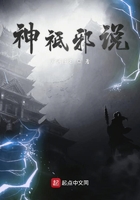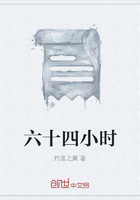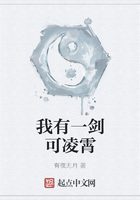"Then you were afraid even where no fear was, mother darling," said he, "and if you would like to sit out in the garden I'll take a chair out for you, and a table and candles. Let's all sit out;it's a divine hour, this hour after sunset. There are but a score of days in the whole year when the hour after sunset is warm like this. It's such a pity to waste one indoors. The young people"--and he pointed to Sylvia and Michael--"will gaze into each other's hearts, and Mamma's will beat in unison with Lady Ursula's, and Iwill sit and look at the sky and become profoundly sentimental, like a good German."Hermann and Michael bestirred themselves, and presently the whole little party had encamped on chairs placed in an oasis of rugs (this was done at the special request of Mrs. Falbe, since Lady Ursula had caught a chill that developed into consumption) in the small, high-walled garden. Beyond at the bottom lay the road along the embankment and the grey-blue Thames, and the dim woods of Battersea Park across the river. When they came out, sparrows were still chirping in the ivy on the studio wall and in the tall angle-leaved planes at the bottom of the little plot, discussing, no doubt, the domestic arrangements for their comfort during the night. But presently a sudden hush fell upon them, and their shrillness was sharp no more against the drowsy hum of the city.
The sky overhead was of veiled blue, growing gradually more toneless as the light faded, and was unflecked by any cloud, except where, high in the zenith, a fleece of rosy vapour still caught the light of the sunken sun, and flamed with the soft radiance of some snow-summit. Near it there burned a molten planet, growing momentarily brighter as the night gathered and presently beginning to be dimmed again as a tawny moon three days past the full rose in the east above the low river horizon. Occasionally a steamer hooted from the Thames and the noise of churned waters sounded, or the crunch of a motor's wheels, or the tapping of the heels of a foot passenger on the pavement below the garden wall. But such evidence of outside seemed but to accentuate the perfect peace of this secluded little garden where the four sat: the hour and the place were cut off from all turmoil and activities: for a moment the stream of all their lives had flowed into a backwater, where it rested immobile before the travel that was yet to come. So it seemed to Michael then, and so years afterwards it seemed to him, as vividly as on this evening when the tawny moon grew golden as it climbed the empty heavens, dimming the stars around it.
What they talked of, even though it was Sylvia who spoke, seemed external to the spirit of the hour. They seemed to have reached a point, some momentary halting-place, where speech and thought even lay outside, and the need of the spirit was merely to exist and be conscious of its existence. Sometimes for a moment his past life with its self-repression, its mute yearnings, its chrysalis stirrings, formed a mist that dispersed again, sometimes for a moment in wonder at what the future held, what joys and troubles, what achings, perhaps, and anguishes, the unknown knocked stealthily at the door of his mind, but then stole away unanswered and unwelcome, and for that hour, while Mrs. Falbe finished with Lady Ursula, while Hermann smoked and sighed like a sentimental German, and while he and Sylvia sat, speaking occasionally, but more often silent, he was in some kind of Nirvana for which its own existence was everything. Movement had ceased: he held his breath while that divine pause lasted.
When it was broken, there was no shattering of it: it simply died away like a long-drawn chord as Mrs. Falbe closed her book.
"She died," she said, "I knew she would."Hermann gave a great shout of laughter.
"Darling mother, I'm ever so much obliged," he said. "We had to return to earth somehow. Where has everybody else been?"Michael stirred in his chair.
"I've been here," he said.
"How dull! Oh, I suppose that's not polite to Sylvia. I've been in Leipzig and in Frankfort and in Munich. You and Sylvia have been there, too, I may tell you. But I've also been here: it's jolly here."His sentimentalism had apparently not quite passed from him.
"Ah, we've stolen this hour!" he said. "We've taken it out of the hurly-burly and had it to ourselves. It's been ripping. But I'm back from the rim of the world. Oh, I've been there, too, and looked out over the immortal sea. Lieber Gott, what a sea, where we all come from, and where we all go to! We're just playing on the sand where the waves have cast us up for one little hour. Oh, the pleasant warm sand and the play! How I love it."He got out of his chair stretching himself, as Mrs. Falbe passed into the house, and gave a hand on each side to Michael and Sylvia.
"Ah, it was a good thing I just caught that train at Victoria nearly a year ago," he said. "If I had been five seconds later, Ishould have missed it, and so I should have missed my friend, and Sylvia would have missed hers, and Mike would have missed his. As it is, here we all are. Behold the last remnant of my German sentimentality evaporates, but I am filled with a German desire for beer. Let us come into the studio, liebe Kinder, and have beer and music and laughter. We cannot recapture this hour or prolong it.
But it was good, oh, so good! I thank God for this hour."Sylvia put her hand on her brother's arm, looking at him with just a shade of anxiety.
"Nothing wrong, Hermann?" she asked.
"Wrong? There is nothing wrong unless it is wrong to be happy.
But we have to go forward: my only quarrel with life is that. Iwould stop it now if I could, so that time should not run on, and we should stay just as we are. Ah, what does the future hold? Iam glad I do not know."
Sylvia laughed.















